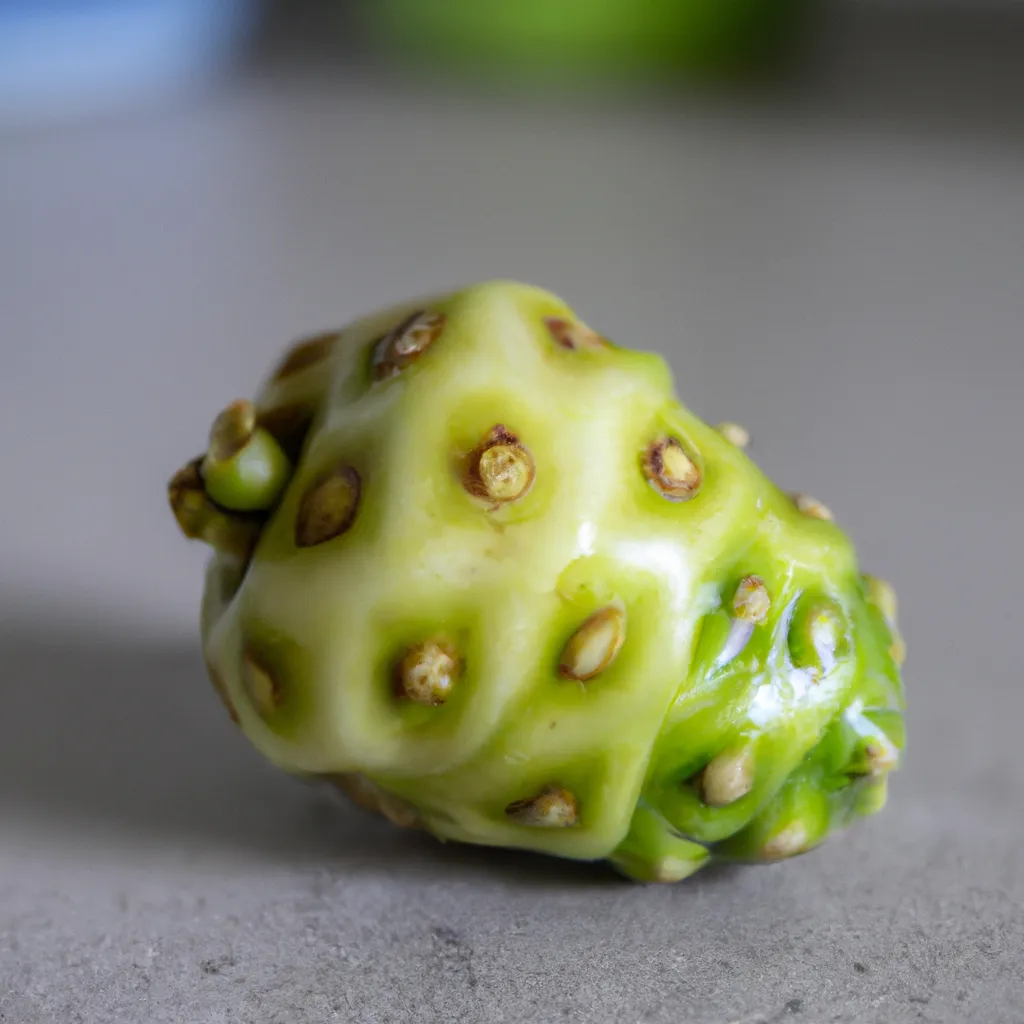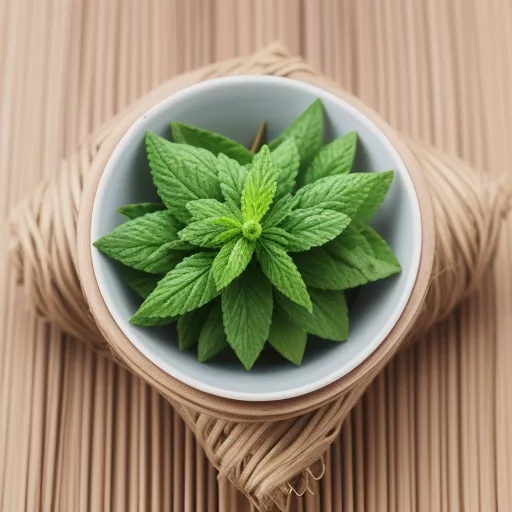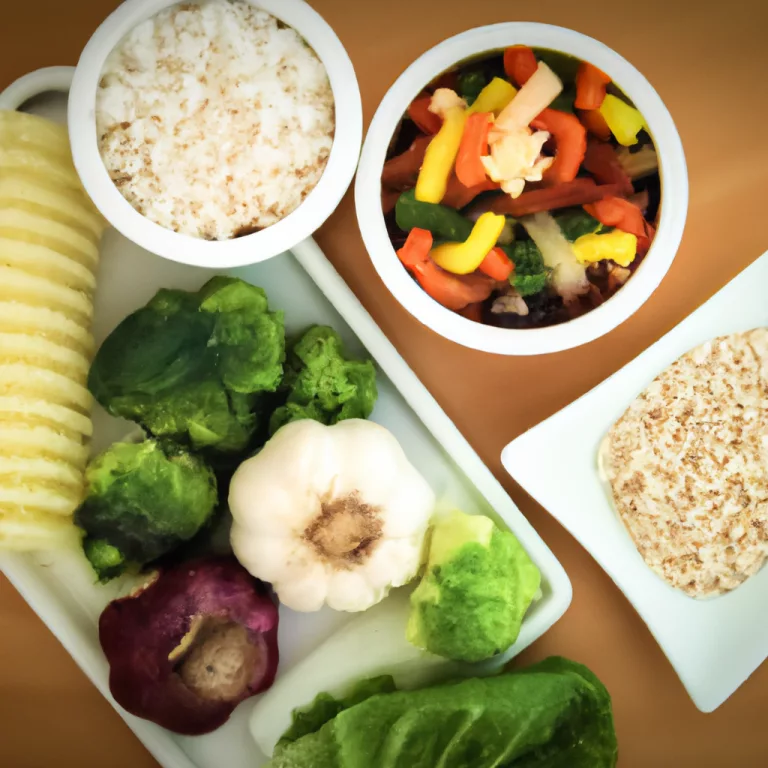Noni: The Pungent Superfruit Transforming Wellness Trends
Key Points
- Noni fruit is known for its distinctive taste and aroma. It has a rich cultural and medicinal history, first and foremost in Polynesian cultures, where it has been treasured for centuries.
- This intriguing fruit has garnered significant international attention for its exceptional nutritional properties. It offers a range of potential health benefits, including antimicrobial, antioxidant, and anti-inflammatory properties.
- Scientific research supports a lot of the traditional claims. Research suggests that noni can enhance immune function, improve cardiovascular health, and alleviate joint pain. Further research is required to prove these claims definitively.
- Noni is sold in many forms, including juice, powder, and capsules. This adaptability helps it fit into a healthy and varied diet, despite its taste, which can be challenging.
- Start with noni in small doses. Listen to your body and speak to a qualified healthcare professional, especially if you are on medication or have underlying health issues.
- Sustainable sourcing and consumer awareness are key to ensuring noni is produced ethically. They are crucial to protecting our environment and benefiting local communities globally.
- EXPERIENCE THE POWER OF NONI: Tahitian Noni delivers a unique superfruit blend made from pure noni fruit puree, combined with wild blueberry and grape extracts. This island-inspired drink contains essential vitamins, minerals, and phytonutrients. Harvested in French Polynesia – Tahiti, this traditional botanical beverage has been valued for generations.
- CONVENIENT 1-PACK FOR DAILY WELLNESS: Each set includes 1pc of 1-liter bottles of Tahitian Noni, providing a convenient option of supply. This unsweetened, nutrient-rich beverage features a bold, tart flavor with no artificial ingredients. Enjoy it alone, mixed into smoothies, or blended with herbal tea as part of a balanced lifestyle.
- COLD-PRESSED & FERMENTED FOR MAXIMUM BENEFITS: Crafted using a specialized cold-pressing and fermentation process, this liquid noni blend maintains its original properties and key nutrients. Infused with pomegranate, mangosteen, aronia berries, and cranberry extracts, this refreshing and nutrient-dense drink is a great addition to your daily routine.
- DRINK ON THE GO: Enjoy Tahitian Noni anytime, whether at home, work, or traveling. It can be enjoyed on its own, mixed with fresh fruit juice, or blended into smoothies for a light and invigorating beverage. Its fermented, fruit-based formulation helps retain essential nutrients, making it an easy addition to your diet.
- DECADES OF EXPERTISE IN NONI FORMULATION – With over 20 years of experience, Tahitian Noni remains committed to crafting a carefully prepared noni product. The noni fruit is harvested in Tahiti, ensuring its distinctive properties are preserved. We take pride in delivering a well-balanced, nutrient-rich noni drink for those looking for a fruit-powered botanical beverage.
Last update on 2025-12-19 / Affiliate links / Images from Amazon Product Advertising API
Noni fruit is a small, bumpy, white-fleshed fruit that grows on the Morinda citrifolia tree, an evergreen native to Southeast Asia and Australasia.
Noni fruit is known for its pungent odor and bitter flavor. Traditionally, it has been used for its potential health benefits as an alternative medicine.
Today, people most commonly consume it in juice, tea, or capsule form. Research suggests noni fruit can help support your immune system and deliver antioxidant benefits.
Further studies are needed to validate these assertions.
The fruit’s high vitamin C content and unique compounds have attracted attention from both wellness enthusiasts and researchers. Discover more about the uses of noni fruit.
What is This “Vomit Fruit”?

Mature noni fruit is often referred to as “vomit fruit” for its pungent smell and taste. Pungent is an understatement; it’s foul! People usually liken it to smelly cheese or even vomit, and that’s how it got the nickname.
The taste … well, it’s just about the most bitter thing you could ever imagine. In fact, for many, that might be the worst part, making it difficult even to attempt to taste the fruit.
Nevertheless, noni has been an essential part of traditional diets and medicine in the Pacific Islands for centuries.
From Pacific Treasure to Globe
The noni tree is native to tropical regions, including the Pacific Islands, Australia, and Southeast Asia. Polynesian voyagers recognized noni as an essential plant.
They carried it with them to Hawaii, selecting it as one of just 24 plants to accompany them on the long voyage.
It’s noni’s rugged persistence that makes it able to grow in tough soils. It’s resilient enough to grow in climates that range from sandy coastal to rocky interior.
Over time, noni left the Pacific far behind. It captured the imagination of folks around the world who are intrigued by its unusual taste and its applications in herbal medicine.
Why The Infamous Nickname?
Outside the Pacific Islands, it’s often nicknamed “vomit fruit” by people unfamiliar with its pungent smell and taste. Most non-Polynesian people find the scent too much and cannot get past the taste.
While it’s oftentimes a nuisance to tourists, locals have depended on it for sustenance and cures for centuries. This is a powerful illustration of how cultural behaviors dictate our perceptions and consumption of foods.
Besides its stench, noni is a powerhouse of vitamin C, potassium, and antioxidants. While some people consume noni fruit raw, most opt for noni juice, capsules, or powder.
Noni’s Unique Appearance
Noni fruits are about the size of a mango, but they have a bumpy, lumpy appearance—like a giant, yellow mulberry. Its skin is pockmarked and warty.
This baffling appearance only adds to its tropical allure while simultaneously scaring away would-be noni eaters. Unlike most fruits, noni’s look and scent would scare anyone away.
ts long-standing use in traditional medicine continues to make it a popular choice.
Noni’s Deep Historical Roots
Noni fruit, also known as Morinda citrifolia, has a rich and fascinating history that spans thousands of years.
Survival and healing were not only important to Native Americans, but to people of all cultures. Austronesian voyagers carried noni plants with them when they migrated across the Pacific, leaving their roots from Fiji to Samoa.
This remarkable plant has played a vital role in our daily lives.
More than a food source, it has played an integral role in traditional healing and cultural practices. Today, noni’s place in herbal medicine is a testament to how ancient practices can inform modern trends.
Ancient Polynesian Superfood
Long before “superfood” became a buzzword, noni had already claimed that title in Polynesia.
Islanders long regarded noni as an essential crop, particularly in times when growing other crops was difficult. The fruit, leaves, and even the roots were utilized in various ways.
People consumed the fruit of the noni plant both raw and cooked, and they produced tonics from its leaves and roots.
When faced with starvation, noni’s ability to withstand harsh conditions provided a lifesaving option. Polynesians valued noni for its contributions to spiritual rituals, recognizing its use beyond its nutritional benefits.
Today, the Guna people of the San Blas Islands continue to incorporate noni into their diet as a staple. This practice showcases the plant’s lasting importance to their culture.
- Superfoods to Nourish Your Life
- USDA Organic
- Keto and Paleo Friendly
- Gluten Free
- Vegan
Last update on 2025-12-19 / Affiliate links / Images from Amazon Product Advertising API
Traditional Medicine Staple Worldwide
As you can see, Noni’s use spread much farther than just Polynesia. Cultures throughout Asia, the Pacific, and the Caribbean quickly embraced noni for its health-enhancing properties. In Fiji and Rarotonga, it quickly became a popular treatment for various ailments.
The dark purple roots and bark became a significant source of dye, and the leaves quickly transformed into a new vegetable found on dinner tables.
Traditional and alternative medicine circles around the world are now studying noni, with the hope of learning from this conventional healing practice.
That reverence for ancestral wisdom continues to influence contemporary health perspectives.
More Than Just “Starvation Fruit”
Although some have disparagingly referred to noni as a “starvation fruit,” this characterization overlooks the plant’s true worth.
Recipes made with noni provide vitamin C, fiber, and antioxidants to help complement a healthy lifestyle and balanced diet. Its uses extend well beyond subsistence!
People steep the leaves into tea, dye textiles with the roots, and craft wellness tonics from the fruit.
Noni’s deep cultural roots are an integral part of balanced meals. Its extensive benefits make it a perennial favorite among health-conscious consumers.
Noni’s Impressive Health Benefits

Noni fruit, scientifically known as Morinda citrifolia, is gaining popularity worldwide due to its impressive array of health benefits.
Noni juice and extracts are popular in many cultures for their natural effects on immune health, pain relief, and overall wellness. A lot of its positive reputation can be attributed to traditional medicine.
Today, real-world research is beginning to substantiate these impressive claims with data and results that are difficult to dispute.
Noni is making a name for itself as a powerful natural remedy! Here’s what today’s science has to say about noni’s one-of-a-kind health benefits.
1. Natural Antimicrobial Powerhouse
Noni’s incredible antimicrobial properties prevent the fruit from rotting, even in the hottest environments.
Scientists have discovered that compounds in noni can inhibit the growth of bacteria, fungi, and some viruses.
Many in vitro studies have reported that noni extracts are effective in inhibiting the growth of pathogenic bacteria.
These pathogens include Staphylococcus aureus, Escherichia coli, and Salmonella. These are the same bacteria responsible for food poisoning and infectious diseases.
On a day-to-day basis, noni might do wonders for your digestive health. It kicks the nasty bugs to the curb, ya’ll!
For people living in areas with limited access to clean water and food, foods with antimicrobial properties can make a significant difference in maintaining their health.
More research is needed.
These properties are the reason that noni is found in folk medicine traditions for wound healing and infection prevention.
2. Boosting Your Immune Defenses
Noni juice strengthens the body’s immune system, increasing the activity of white blood cells. These cells are the body’s first line of defense against invading germs.
The juice is full of polysaccharides. These long strings of sugar molecules help your immune system maintain your health and keep you vigilant.
These potent compounds work to modulate immune response, boosting the immune system’s ability to combat threats while preventing harmful overreactions.
Research in humans and animals supports these claims. Research has shown that consuming noni juice increases the number of immune cells in the body.
It has beneficial effects on the body’s response to infection. Noni is rich in vitamin C, a nutrient that has long been associated with healthy immune function.
Supporting your immune defenses overall is key—not just for fending off seasonal sniffles, but for your health all year long.
3. Noni’s Potential in Cancer Care
The second area where noni is making a name for itself is in cancer care.
Preliminary laboratory studies have shown that noni extracts inhibit the growth and reproduction of cancer cells.
They can boost the chances of those cancer cells undergoing programmed cell death.
Some animal studies suggest that noni may help shrink tumors or slow the spread of cancer.
Although this sounds great, specialists reiterate that these are preliminary findings and further human studies must be conducted.
Beyond cancer prevention, noni appears to improve the quality of life in cancer patients by alleviating pain and inflammation.
Other researchers are investigating whether noni may enhance the effectiveness of conventional therapies.
They’re further investigating the potential for noni to reduce side effects. It is imperative to talk to a physician if you are interested in taking noni together with any cancer treatment.
However, more evidence is still needed.
4. Potent Antioxidant Properties
Antioxidants are natural substances that combat cell damage. They fight free radicals, unstable molecules associated with aging and disease.
Noni juice is a rich source of antioxidants, including vitamin C, flavonoids, and iridoids. These compounds play a crucial role in reducing oxidative stress and protecting cellular DNA from damage.
A pivotal clinical study found that individuals who consumed noni juice daily for 30 days experienced a notable benefit. They experienced a 44.9% reduction in a marker for oxidative stress.
Oxidative stress is linked to increased risk of heart disease, cancer, and other chronic diseases.
Antioxidants support the body’s healing process in response to physical and mental stress.
This is what makes noni a powerful and beneficial component of a balanced diet.
5. Supporting Healthy Blood Flow
Noni can help protect the heart and blood vessels by promoting healthy blood flow and reducing cholesterol levels.
Other research suggests that noni juice consumption may lower LDL (the “bad” form of cholesterol) and increase HDL (the “beneficial” form of cholesterol). Improved cholesterol levels lead to a lower chance of developing heart disease and stroke.
Additionally, other research indicates that noni has a positive effect on maintaining relaxed blood vessels—an action that can help reduce blood pressure.
Healthy circulation benefits every body system, including brain and muscle health.
Supporting healthy blood flow is crucial for individuals who wish to remain physically active and mentally sharp at any age.
- START YOUR DAY WITH AN ANCIENT VITALITY SHOT — You can feel the difference with as little as 1 fl oz daily.
- NONI JUICE BENEFITS — Support natural energy, immune defense, gut balance, smooth digestion, and help maintain healthy joints and muscles.
- THE NONI SUPERFRUIT — Noni contains more than 160 compounds, including phytonutrients, enzymes, vitamins, and minerals. A prebiotic superfood that Polynesian cultures have used for more than 2,000 years.
- UNDILUTED & AGED TO PEAK POTENCY — We use only hand-picked, sun-ripened noni fruit. Each whole white noni is patiently aged until its juice reaches peak flavor potency, yielding a cleaner, less-bitter taste. This is a more expensive process, but the benefits speak for themselves.
- THE HAWAIIAN GOLD STANDARD — Hawaiian-grown noni is prized for unrivaled purity and premium quality. As Hawaii’s largest noni farm, we’ve perfected world-class standards and set the bar for pure, aged noni.
Last update on 2025-12-19 / Affiliate links / Images from Amazon Product Advertising API
6. Soothing Joint Discomfort
Noni’s pain-relief effects have been utilized for more than 2,000 years in traditional medicine to soothe joint discomfort.
Research conducted in recent years has shown that noni juice provides effective relief for individuals experiencing joint pain, arthritis, and other related conditions.
Another study showed that 60% of individuals with neck pain due to cervical spondylosis found total relief.
They achieved this astounding result after just four weeks of drinking noni juice twice a day.
Noni is also beneficial for reducing swelling and redness in joints, thanks to its anti-inflammatory properties.
In adults with periodontal disease, noni juice consumption reduced markers of gum inflammation.
Reducing inflammation is crucial for maintaining joint health, as less swelling equates to less pain and stiffness.
7. Enhancing Physical Endurance
For athletes and those living an active lifestyle, noni juice offers a natural edge. In one study, well-trained runners consumed noni juice for 21 days.
They saw a stunning 21% boost in time to exhaustion! This means noni can enable muscles to perform for a greater duration before fatigue occurs.
Other potential benefits of Noni can help improve your mood and aid weight loss efforts. In another study, post-menopausal women experienced improved mental health scores when consuming noni juice.
Another group of subjects who drank noni juice lost significantly more weight after six weeks than a comparable group who reduced their caloric intake.
Noni’s Unique Nutrient Mix

What makes Noni fruit unique is its exceptional concentration of nutrients and bioactive compounds.
Like other fruits, but unlike most, noni offers an impressive array of health-supporting factors. It’s a good source of vitamin C, vitamin A, potassium, calcium, and iron.
These nutrients are essential to maintaining the body’s systems and supporting growth, healing, and development of healthy, strong bones.
Noni juice is primarily noni, with just a hint of grape and blueberry juice added. It contains approximately 8 grams of sugar per 100 milliliters serving.
Choosing foods that are uniquely rich in key nutrients, such as noni, can help address dietary gaps. Unfortunately, our modern diets are pretty diverse, so that’s even more crucial!
Beyond Basic Vitamins: A Deep Dive
Noni is rich in vitamin C, which is essential for a healthy immune system and helps neutralize damaging free radicals.
It provides modest quantities of vitamin A and minerals potassium and calcium.
These nutrients are necessary for muscle contraction, nerve impulse transmission, and skeletal integrity.
What makes noni really special, though, is its unique natural plant compounds.
These features include iridoids and scopoletin, which are not present in the majority of other fruits!
Previous research has demonstrated their antioxidant and anti-inflammatory effects.
Incorporating more nutrient-dense foods, such as noni, into meals can significantly enhance overall well-being while helping to mitigate the stress associated with everyday living.
Special Compounds Unveiled
Noni is rich in phytochemicals, including anthraquinones and polysaccharides. These contribute to reduced swelling, improved immune support, and possibly lower blood sugar levels.
Anthraquinones possess potential pain-relieving and cleansing properties, while polysaccharides offer protection against infection.
Further research will be necessary to understand how these compounds interact with one another fully. The initial outcomes are looking good, particularly in relation to oxidative stress.
How Noni Compares Nutritionally
| Nutrient (per 100 ml) | Noni Juice | Acai Juice | Pomegranate Juice |
|---|---|---|---|
| Vitamin C (mg) | 34 | 10 | 10 |
| Sugar (g) | 8 | 12 | 13 |
| Potassium (mg) | 150 | 130 | 214 |
Compared to other superfoods, noni has a higher vitamin C content and lower sugar levels. It’s great paired with different fruits, and the nutrient mix truly helps make a diet more nutritious and balanced.
The best way to get all the nutrients the body needs is by eating a variety of foods, including noni.
How to Stomach Noni Fruit

Noni fruit is particularly notable for its intense, bitter flavor and rancid scent, which can make it challenging to consume.
With a bit of preparation and the proper combination, noni becomes much more manageable to incorporate into your lifestyle.
Let’s explore ways to make noni fruit more palatable and practical for daily meals.
Taming Noni’s Strong Flavor
Combining noni with other foods is the trick.
To mask the bitterness in smoothies, mix 1 cup (240 mL) of cold water with noni fruit. Mango, pineapple, and banana are great options to mask the flavor.
Lemon, lime, and orange juices also work well to mitigate the strong funk flavor. In culinary applications, noni fruit pairs well with yogurt, honey, or light, leafy greens.
For those who enjoy cooking, consider adding chunks to sauces or homemade chutneys.
Every palate is different, so experiment with various combinations until you discover what suits your taste.
Best Noni Forms: Juice, Powder, More
- Juice
- Powder
- Capsules
Juice is the most convenient to use and has a shelf life of 2-3 weeks in the refrigerator. It’s pretty standard for adults to take 90–120 mL once or twice daily for up to 3 months.
Powder blends easily into smoothies, juices, and other noni recipes, and capsules are ideal for on-the-go convenience on those busy days.
Fresh noni spoils in 3–4 days, juice leaves stains on surfaces, and powder often clumps together.
For optimal health benefits, always choose high-quality noni products.
- Noni Fruit Powder 6,000mg per capsule Extract 20:1 Bioperine
- 240 veggie capsules for a 240-Day Supply Vegan/ Vegetarian, Non-GMO
- Noni Fruit Supplement using quality sourcing and innovation
- Manufactured in the USA , in a cGMP registered facility with high manufacturing and sourcing standards
- Our formulations are crafted with quality ingredients and care
Last update on 2025-12-19 / Affiliate links / Images from Amazon Product Advertising API
Smart Noni Consumption Tips
Always start with a minimal dosage to see how your stomach can handle it. Others may experience an upset stomach after consuming noni.
Follow recommended serving sizes. Noni can interact with certain medications or foods, so be sure to consult a healthcare professional if you are in doubt. The key is to listen to your body and to make changes accordingly.
My Personal Noni Taste Test
My initial impression? Hard—bitter, earthy, umami, and funky. Pineapple really took the edge off, though.
These days I make juice smoothies, and enjoy the powder in breakfast bowls. Experimenting with various recipes is the key to learning how to stomach noni fruit.
Noni Use: Safety First
Adventuring into noni fruit as a dietary supplement involves considering the potential benefits against possible risks.
As with most superfoods, noni attracts international acclaim for its potential health benefits; however, like all things, safety and moderation are imperative.
According to the scientific literature, noni juice is likely safe when taken by mouth for short-term use (up to 3 months).
The typical adult dosage is 3–4 ounces (approximately 90–120 mL) taken once or twice daily. Further toxicology studies in mice indicate that no harmful effects were observed even at high doses.
In actual practice, especially for those with preexisting conditions, using these products can be dangerous.
Known Noni Side Effects
Some users experience mild stomach cramps, gas, or diarrhea. There have been a few reports of liver damage, including one case of acute hepatotoxicity in a teenager. It wasn’t clear that noni was responsible, and liver function often returned to normal.
Overall, researchers concluded in studies that serious side effects are uncommon.
In fact, a couple of published studies have shown that noni users experienced fewer adverse events than those in the placebo control group.
Nevertheless, those who have liver trouble or allergies need to be cautious and consult with their physician.
Noni and Medications: Be Aware
Using noni juice can alter the way certain medications function, like those used to lower blood pressure or prevent blood clots.
Be sure to discuss taking noni with your physician, particularly if you are on a regular medication schedule.
Those with kidney or liver issues, or those who take potassium-sparing medications, should use additional care.
Picking High-Quality Noni Products
- Check for third-party testing and certifications.
- Look for pure, unblended juice.
- Know the source and processing methods.
- Watch for added sugars or fillers.
Sustainable Noni: Why It Matters
Unsustainable noni farming practices may overtax local resources. Using more sustainable techniques prevents land damage and empowers local farmers.
When we choose ethical brands, we choose to protect the earth and the communities where our products are made.
Unanswered Noni Research Questions
We have many questions remaining about how noni works, its long-term effects, and its complete benefits. Continued, rigorous research in the field of herbal medicine should provide answers to these questions.
- 𝗘𝗻𝗷𝗼𝘆 𝗡𝗮𝘁𝘂𝗿𝗮𝗹 𝗘𝗻𝗲𝗿𝗴𝘆 𝗔𝗹𝗹 𝗗𝗮𝘆. Ditch the jitters and crashes. Our organic noni fruit powder is your secret to sustained vitality, naturally. It’s packed with essential nutrients and antioxidants, giving you a revitalized, more vibrant feeling without relying on artificial stimulants.
- 𝗖𝗲𝗻𝘁𝘂𝗿𝗶𝗲𝘀 𝗼𝗳 𝗪𝗲𝗹𝗹𝗻𝗲𝘀𝘀, 𝗦𝗶𝗺𝗽𝗹𝗶𝗳𝗶𝗲𝗱 𝗳𝗼𝗿 𝗬𝗼𝘂. Tap into the remarkable benefits of Noni fruit, an ancient botanical treasure. This potent fruit has been trusted by traditional healers for centuries to foster healthy digestion and maintain balanced energy. Now, it’s easier than ever to bring this holistic strength into your modern life. Just blend our organic noni fruit powder into your routine and cultivate a naturally more energetic you.
- 𝗨𝗻𝗹𝗼𝗰𝗸 𝗪𝗲𝗹𝗹𝗻𝗲𝘀𝘀, 𝗧𝗮𝘀𝘁𝗲𝗳𝘂𝗹𝗹𝘆 𝗦𝗶𝗺𝗽𝗹𝗲. We know noni fruit powder has a powerful, distinct flavor—and that’s precisely why we’ve made it effortless to enjoy its incredible benefits without the overwhelming taste. Simply blend into fruit smoothies, stir into coffee or robust tea, or even sneak it into savory dishes. It’s the easiest way to nourish your body and truly enjoy this incredible superfood
- 𝗛𝗮𝗿𝘃𝗲𝘀𝘁𝗲𝗱 𝗳𝗼𝗿 𝗬𝗼𝘂𝗿 𝗛𝗲𝗮𝗹𝘁𝗵: Experience wellness the way nature intended. Our noni juice organic powder comes from raw, organic fruit, promising a product that’s inherently non-GMO, gluten-free, and completely free of artificial additives. Choose the simple, unadulterated purity that your holistic health deserves.
- 𝗧𝗵𝗲 𝗡𝗼𝗻𝗶 𝗙𝗿𝘂𝗶𝘁: Your ‘Queen of Health Plants’. Ready to elevate your well-being? Noni fruit is renowned as the ‘Queen of Health Plants’ for good reason – it offers an expansive range of natural applications to support your total body health. Integrate our premium powder into your routine and seamlessly embrace a holistic lifestyle powered by ancient wellness.
Last update on 2025-12-19 / Affiliate links / Images from Amazon Product Advertising API
Our Conclusion
With a highly pungent aroma and an extremely bitter flavor, noni fruit is unmistakable. Those of us who’ve lived with it and among it, not just eating it but allowing it to heal us.
You can’t see it, but on the inside, you’re getting a cocktail of vitamin C, fiber, and other plant goodies, all stuffed in this lumpy, unusual fruit.
Some people ingest it in juice form, while others dry the fruit and consume it that way; however, the odor always seems to linger.
You may be a bit suspicious at first. People who endure the taste and texture usually testify that it’s worth it for the energy boost.
Never ignore professional medical advice in seeking treatment because of something you have read on this website.
Explore our other guides to discover more about foods like noni, which combine ancient traditions with modern science.
Stay tuned and stay curious!
Frequently Asked Questions
What is noni fruit?
Noni fruit, derived from the Morinda citrifolia tree, is a pungent tropical fruit often referred to as “vomit fruit” due to its strong odor. This fruit has been utilized in traditional folk medicine for over 2000 years and is celebrated for its notable antioxidant activity.
Why is noni fruit called “vomit fruit”?
Why is the noni fruit, also known as great morinda, called “vomit fruit”? Its strange smell contributes to this alternative name.
What are the main health benefits of noni fruit?
That’s because noni fruit, particularly the unripe noni fruit, is high in antioxidants, vitamin C, and various other nutrients, which could help strengthen the immune system, aid digestion, and increase vitality.
How can I eat noni fruit despite its taste?
First of all, you can eat noni fruit raw. Most consumers opt to drink noni fruit juice directly or blend it with other fruits, such as grapes, to mask its strong flavor profile. Cooking it or running it through a blender can help mask its robust taste.
Is noni fruit safe for everyone?
Generally, noni fruit, particularly the noni fruit juice and unripe noni fruit, is safe for most people to consume in moderate amounts. Yet pregnant women, individuals with renal issues, or those on specific medications should seek advice from a health professional before trying noni fruit.
What nutrients does noni fruit contain?
What nutrients does the noni fruit contain? This medicinal plant is rich in phytonutrients, which are essential for immune health and can help protect cells from damage.
How has noni fruit been used historically?
Historically, the noni fruit, renowned for its notable antioxidant activity, has been highly valued for its healing properties and its significance in local diets.












